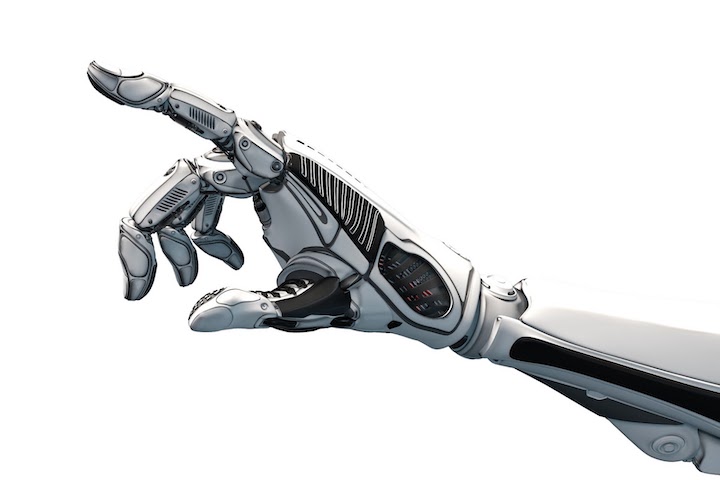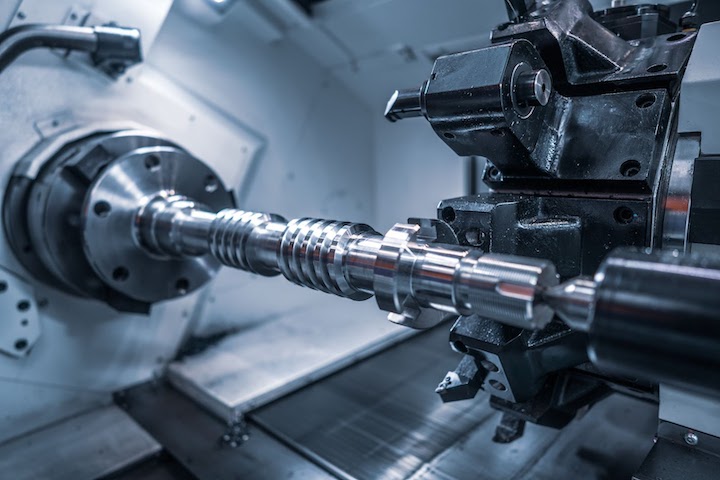Time to read: 7 min
Choosing a career path in mechanical engineering can be daunting, especially considering how varied the mechanical engineering field is. The US Bureau of Labor Statistics estimates that the demand for mechanical engineers will grow by seven percent from 2020 to 2030, and as many as 20,000 mechanical engineering jobs will become available over this period. It’s clear that mechanical engineering is one of the fastest-growing fields in the engineering sector, with many jobs available.
This article will discuss five mechanical engineering jobs that are highly rewarding and offer interesting work as well as financial gain, along with some non-engineering career paths. Read on to explore the world of possibilities you have access to as a mechanical engineer.
Mechanical Engineering Salaries
Before we get to the career paths, let’s first talk money. It’s difficult to determine an accurate salary range for any field, and the same is true for mechanical engineering — most companies don’t publish their salaries and most engineers don’t report them. As such, the range of salaries varies widely, depending upon your years of experience, industry, and location. So, the salary ranges in this article are for general guidance only.
That said, an entry-level engineer can expect an starting salary of around $60k per year for many mechanical engineering jobs. While this may seem low, pay scales up as your experience grows and averages can reach as high as $160k — and in some niche industries, typical salaries are much higher.
Also, the NACE Survey Results Salary Calculator is a good resource to learn about the salaries for your area and specific field of interest. Glassdoor is another great resource to check salaries based on real data supplied by employees — you can choose filters such as years of experience, location, and even specific employers.
Mechanical Engineering Career Paths
Biomedical Engineering
Biomedical engineering is a combination of mechanical engineering, medicine, and biology that focuses on the design and development of a range of biomedical devices. including: prosthetic limbs, artificial organs, and medical diagnostic equipment.
Biomedical engineering has a human element not present in other mechanical engineering fields. It’s ideal for those who want to make a direct impact on the health and well-being of individuals while working on the cutting edge of technology. A biomechanical engineer earns, on average, between $90k to $161k per year. While it’s possible to work as a biomedical engineer with only a mechanical engineering degree, higher-paying senior positions may require additional qualifications and expertise in the medical field.

Figure 1: Biomedical Engineering
Nanoengineering
Nanotechnology covers a wide range of topics from carbon nanotubes and graphene materials engineering to nano-sized machines and sensors referred to as micro-electro-mechanical systems (MEMS). Nanoengineering, or the engineering of nanotechnology, refers to the design, testing, and fabrication of systems and materials at the nanoscale. The field of nanotechnology has massive growth potential and is still in its infancy, with the most groundbreaking work being carried out in university laboratories.
Due to the highly specialized nature of some of the work in this industry, it may be necessary to obtain a relevant nanotechnology Ph.D. to be considered for more advanced roles. A nanotechnology engineer earns on average $94k per year, and this can increase to as much as $152k per year for senior roles.

Figure 2: Electron microscope image of a nanotube bundle
Mechatronics Engineer
Mechatronics engineering mixes electronics, software, and mechanical engineering to create complex autonomous robotics or smart, cloud-connected, IOT (internet of things) devices. Mechatronics is the perfect field for mechanical engineers who want to work with cutting-edge electro-mechanical systems. The world is becoming ever more automated, and mechatronics engineers will be the ones to design, test, and bring to market the next generation of robotics systems.
Large companies like Hyundai (new owners of Boston Dynamics) and Tesla are growing their robotics capabilities to create an automated future, and it will take skilled engineers to achieve this vision. Mechatronics engineers must have a passion for both mechanical systems and electronic circuits — in most cases, mechatronics engineers are expected to perform low-level programming on electronic control systems.
Mechatronics engineers earn, on average, between $93k to $136k per year. While there are standalone mechatronics engineering degrees, a mechanical engineering degree is an excellent way to enter this industry. Continuing education may be required to stay up to speed with relevant electronic and software principles.
Pro-Tip: If you’re interested in mechatronics and automation, check out our on-demand webinar How to Automate Robotics Processes in Record Time

Figure 3: Robotic Arm
Manufacturing Engineer
I have always loved working in manufacturing shops as I consider them to be an engineer’s playground — there are so many machines and processes to learn about and and use! A typical manufacturing engineer is tasked to develop new processes, systems, and technologies to effectively manufacture the designs produced by design engineers.
This field requires an in-depth understanding of both the design and production side of engineering, because you must be able to balance engineering requirements with manufacturing capabilities and limitations. Manufacturing engineering is a fast-paced profession due to constant pressures to maintain lead times and keep costs low, without sacrificing quality. Manufacturing engineers earn on average $80k, which can climb as high as $113k per year.

Figure 4: CNC Milling
Design Engineer
Design engineering is what most mechanical engineers imagine when they decide to enter the field. It’s glamorous, science-based, and engineering-theory oriented. There are many things you could go on to design — including equipment like gearboxes, continuous mining machinery, valves, engines, agricultural equipment, and other mechanical systems.
While there are electronics in these systems, they aren’t often the focus of a machine designer. I worked for a few years as a component design engineer, designing heat exchangers for commercial aircraft. That process utilized a lot of thermodynamics, fluid mechanics, and materials science knowledge on a daily basis. There’s a world of possibilities with a career path in design engineering.
Prototyping is a key job responsibility in design engineering, and engineers are required to perform detailed engineering calculations and utilize methods such as finite element analysis to verify that designs will function as expected. They’re also often tasked with working cross-functionally to ensure that the plan for manufacturing and testing components is clearly identified and sound.
Once manufactured, a functional prototype will often need to be thoroughly tested prior to large-scale production. This task is often performed in the field, and it’s the responsibility of the design engineer to set up commissioning and testing plans, and in most cases, to physically oversee the process. A design engineer can expect to earn, on average, anywhere from $80,000 to $120,000 per year. While no additional qualifications are required to enter this field, it’s a good idea to keep up with relevant new developments and technologies.

Figure 5: Car Gearbox
Alternative Mechanical Engineering Jobs
Mechanical engineers are highly sought-after in a number of industries primarily due to the systematic way in which they approach and solve problems. I like to think of engineers as sophisticated problem solvers in any industry, including finance. While finance may not appeal to many mechanical engineers, it can still be a rewarding career due to the complexity of the problems — and it has high potential for growth. With excellent math skills and industry knowledge about manufacturing, you can try your hand at financial consulting in the manufacturing sector. However you should check with local laws before performing consulting work, as doing so may require additional certification.
Another career path often chosen by mechanical engineers is software development — just know that in most cases, a mechanical engineering degree won’t get you a software engineering job. So, if you’re willing to get the additional qualifications that may be required, it can be an interesting career change for a mechanical engineer because software development is distilled problem-solving.
A third career path many mechanical engineers may not initially consider is marketing. Your background and hands-on industry knowledge is an excellent qualifier for some types of marketing jobs. After working as a mechanical engineer for nearly a decade, I found myself loving a second career as a technical writer. Maybe sharing your knowledge and helping other engineers is as fulfilling to you as engineering itself!
Which Mechanical Engineering Jobs Are the Best?
Mechanical engineering can be a rewarding career, but with many different sorts of jobs within the field, choosing a career path can be daunting. If starting out as a mechanical engineer, it’s a good idea to spend some time figuring out what parts of the profession are most enjoyable and then pivot your career in that direction. Don’t be afraid to seek out internships or co-op positions with companies to test out what you like, without the pressure of a permanent position.
Jumping headfirst into an industry without first understanding what the typical day-to-day looks like can result in a poor experience and a desire to leave the industry altogether. What works best for each of us is an individual thing, however, if you prioritizing growth potential for your career, mechatronics and biomedical engineering are excellent choices. Also, general engineering management is also a path in every engineering field discussed in this article.
Custom Parts, Fast – Start Your Next Project With Fictiv
Every mechanical engineer will, at some point, need a partner who can provide even the most complex parts at ridiculous speeds. Fictiv has you covered for all your CNC machining, injection molding, urethane casting, and 3D printing needs. We’re experts at producing quality custom mechanical parts, in a variety of materials, and we simplify custom part sourcing with intelligent, streamlined, automated workflows. Fictiv is your operating system for custom manufacturing that makes part procurement faster, easier, and more efficient.
Create an account and upload your part to see what our instant quote process, design for manufacturability feedback, and intelligent platform can do for you.








